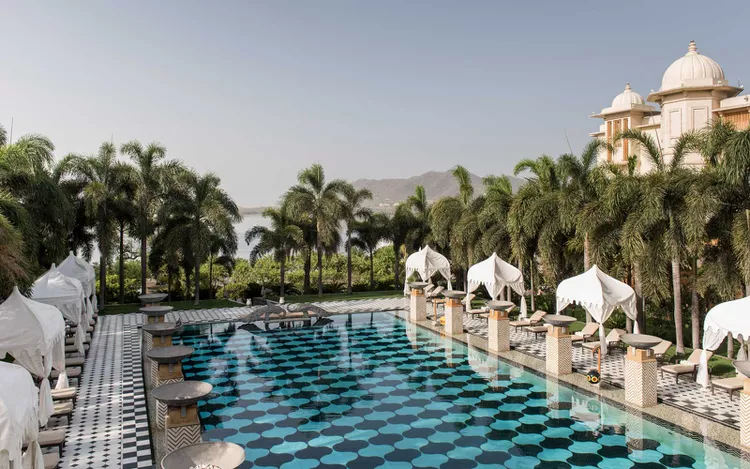Understanding Hotel Ratings: The Five-Star Experience
With booking sites offering sometimes thousands of reviews for a single property, it can be challenging to sift through all the information to find the perfect hotel room. Anything—from a chain restaurant to an all-inclusive resort—can be rated online, and these ratings depend on many different factors. For instance, a hotel could be a “five-star” property with a “three-star” user rating, leaving a lot of room for confusion. Moreover, different countries and booking sites have specific standards for rating hotels, which only adds to this uncertainty.
To comprehend what a hotel’s rating actually means, consulting an expert can be beneficial. Jim Carreker, a board member of the luxury brand Relais & Châteaux, which encompasses 600 hotels worldwide, notes that most rating systems typically overlook essential attributes like charm, courtesy, friendliness, and local staff involvement. He further explains that to achieve five stars in some countries, hotels must meet specific room requirements, such as having a television, a certain thread count in linens, or designated square footage per room.
Expedia
Expedia is among the most-used booking sites in the United States, offering over 590,000 bookable properties. While their rating system can be subjective, they provide general guidelines for five-star properties based on various national rating systems. According to their ratings guidelines, five-star hotels typically offer gourmet dining, luxury spas, and more. However, it is advisable to do additional research to ensure a truly five-star experience.
AAA
:max_bytes(150000):strip_icc():format(webp)/aaa-five-diamond-spice-island-grenada-FIVESTAR1019-f808fa190a2a47bb9981f10ba3ca9c37.jpg)
America’s premier rating system is operated by the American Automobile Association (AAA). Their Diamond Rating system awards five diamonds as the highest designation a hotel can attain. Properties are evaluated unannounced by inspectors who look for ultimate luxury, meticulous personalized service, and extensive amenities to achieve five-diamond status.
Europe
Hotel ratings in Europe can be somewhat complicated. The Hotelstars Union, which is part of the international hospitality organization HOTREC, oversees ratings in 17 European countries. However, major tourist destinations like France, Spain, the United Kingdom, and Italy are not included. For a hotel to attain five stars under HOTREC’s 1-5 star rating system, it must provide 24-hour reception, valet parking, in-room safes, daily turndown service, and much more.
France
:max_bytes(150000):strip_icc():format(webp)/france-palace-four-seasons-george-v-food-FIVESTAR1019-c5ef07b53a364c7ca4408d4406ac60b9.jpg)
When traveling to Paris, you may assume that a five-star hotel ranks at the top. However, France features a unique five-star rating system complemented by an even higher tier known as the “palace distinction.” Five-star hotels must provide larger room sizes, bilingual staff, room service, concierges, and more. To achieve Palace status, hotels must also have top-rated restaurants, spas, fitness facilities, and uphold a respectful environmental policy.
The United Kingdom
The Automobile Association (The AA) serves as the United Kingdom’s authoritative system for rating hotels based on a 1-5 star scale. UK hotels receive ratings according to several factors, with five-star status signifying luxurious rooms, high-quality food, and multilingual service. For the best experience, look for hotels awarded five red stars—this distinction is reserved for establishments that are exceptionally outstanding.
Australia
:max_bytes(150000):strip_icc():format(webp)/australia-luxury-lodges-of-australia-the-louise-FIVESTAR1019-a666df20cf39473a86790faa6e1d5a74.jpg)
In Australia, the country employs a comprehensive system called Star Ratings that assesses hotels based on objective metrics. Unfortunately, many luxury hotels have chosen to withdraw from this rating system. Consequently, top boutique lodges are now collaborating with Luxury Lodges of Australia to maintain competitive standards for upscale lodging options.
Italy
If you’ve ever booked a hotel in Italy in May, you may have experienced inconsistent air conditioning, despite the requirement that four- and five-star hotels must have A/C. There are several factors to keep in mind when choosing a hotel in Italy. A one-star hotel doesn’t guarantee a private bathroom; the standard is one shared bathroom per three rooms. Moreover, hotels are only obligated to change towels and linens every three days, and those in historic buildings often receive higher ratings, despite offering fewer amenities like elevators.
India
If you’re interested in how a hotel achieves five stars in India, you’ll need to consult a comprehensive guide from the Indian Tourism Board. Noteworthy requirements include: all hotels must feature two hooks in every bathroom, five-star hotels must possess x-ray machines at entrances, and swimming pools need to have prominently displayed LED wall clocks with numerals no less than three inches tall.
China
Interestingly, in China, you might find that four-star hotels offer ultra-luxury due to a governmental loophole. To address corruption, the Chinese government forbids officials from lodging in five-star hotels. This regulation has prompted a wave of luxury hotels to voluntarily downgrade their star status to accommodate government employees. While this undermines the rating system, it can be advantageous if you’re seeking a high-end hotel in China.
Given the variability in hotel rating standards across different countries, knowing exactly what level of luxury you’re securing can be a challenge when planning a trip. Therefore, for those desiring a legitimate five-star experience, it’s wise to focus on reputable hotel brands such as Relais & Châteaux, Four Seasons, Belmond, and Rosewood, as these establishments consistently meet the highest hospitality standards, ensuring peace of mind during your travels.




